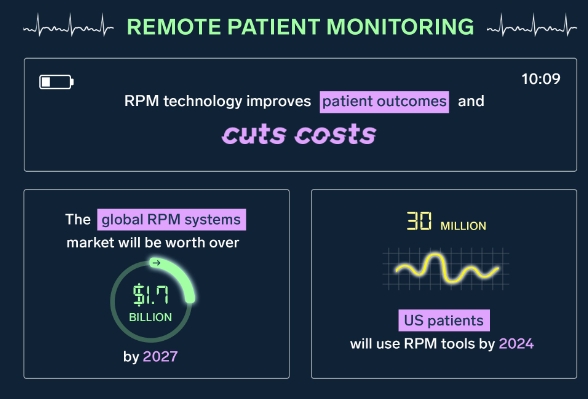Remote patient monitoring (RPM) is revolutionizing healthcare delivery
Remote patient monitoring uses technology to monitor patients outside of traditional healthcare settings
RPM allows for continuous monitoring of vital signs and other health metrics
This technology is especially beneficial for patients with chronic conditions who require constant monitoring
The impact of RPM on healthcare is far-reaching
RPM can improve patient outcomes by allowing for early detection of health issues
It also reduces the need for in-person doctor visits, saving time and resources for both patients and healthcare providers
RPM can help to prevent unnecessary hospitalizations and emergency room visits
This technology has the potential to lower healthcare costs and improve overall patient satisfaction
The future of healthcare will likely see an increase in the use of remote patient monitoring
As technology continues to advance, RPM can become even more efficient and accessible
Healthcare providers and patients alike stand to benefit from the continued development and adoption of RPM
In conclusion, remote patient monitoring is changing the way healthcare is delivered, providing better outcomes for patients and reducing costs for providers. As the technology continues to evolve, the impact of RPM on healthcare will only continue to grow in the future.

